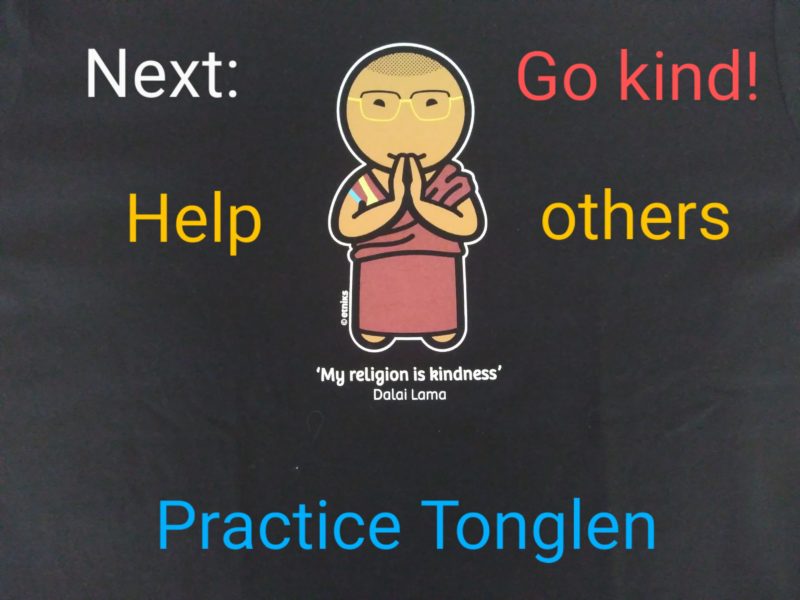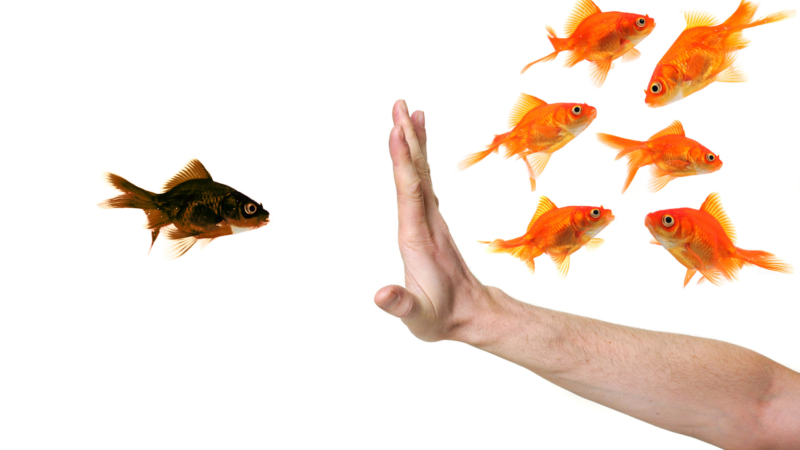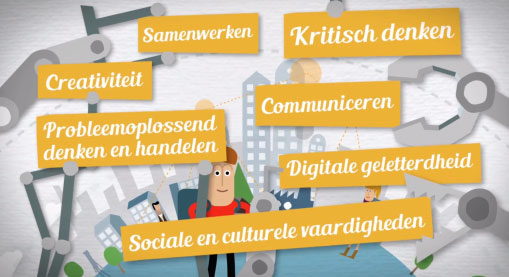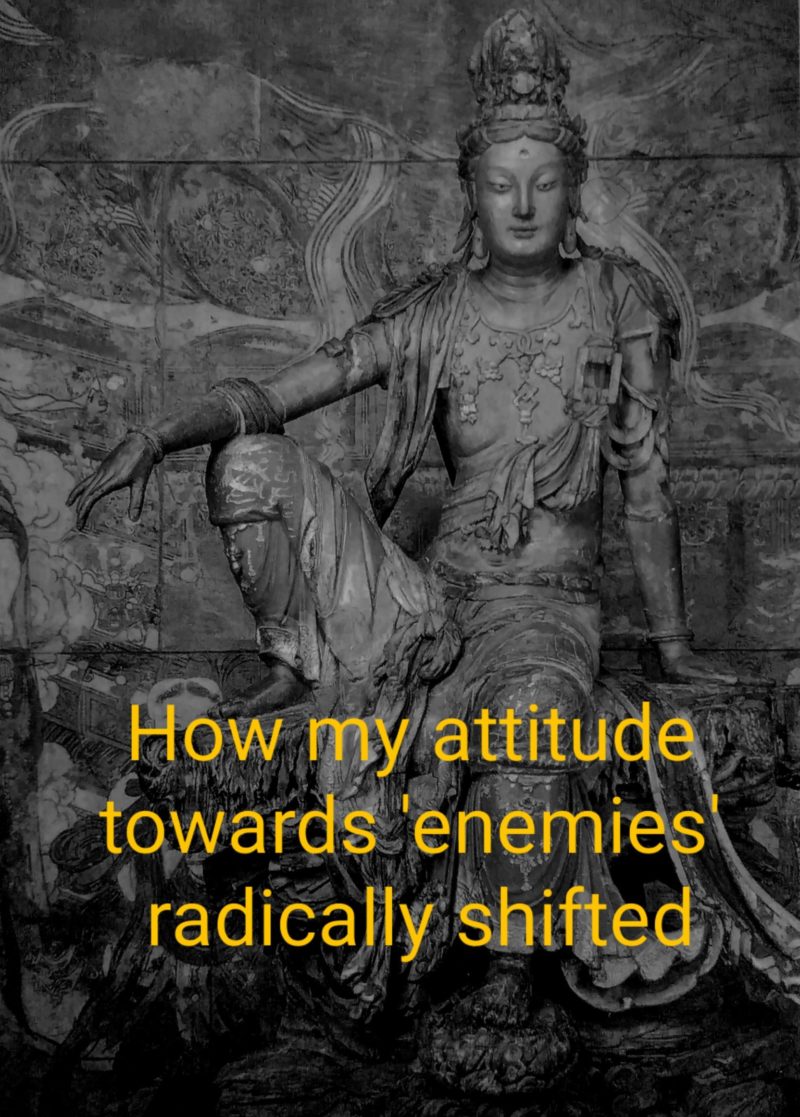Sometimes we don’t know what to do. We feel a lack of energy to move ahead. Or we don’t know where to go from where we are now – perhaps even have the idea we can not change things. There can also be a sense of darkness, as if we are in a cold and empty place in our mind, and not seeing any way forward. How, in such moments, can we know what to do next? To know, what is the right thing to do in our life in that moment?
Unexpected turns
Whether we are aware of it or not, every day we choose something, or someone, to guide us in life. For some that can be a divine being or religious figure. For others it is perhaps a teacher, the author of a book or the leader of a movement. It can also simply be a particular value or mission we have chosen to cultivate and pursue in our life.
Yet, life takes unexpected turns. We often face challenging situations. Then, it might not be fully clear to us what the next right thing to do is. A lot of movies, songs and books are about such moments. At the end of this article I have given an example, Frozen 2, together with a way to contemplate about our life and actions. But we don’t need to rely on other sources. I think we all experience these moments in our own lives.
At this point in time, for many people, the covid-19-pandemic has lead to such moments and perhaps continues to do so. What we considered to be stable and certain in life, dropped away. And we need to re-invent ourselves, so to speak. Not just our own individual life, but our life together as a society – on a local, regional and global level.
As expressed in an earlier article, I, for example, am not able to travel to India where I was supposed to start a Tibetan language program at the Institute of Buddhist Dialectics. I can not travel to my country of origin either, or help out during events at our contemplative center Nalanda West in Seattle because they are cancelled for the time-being. Finding myself in this situation, I wondered: now what?

As a buddhist practitioner, I turned towards teachings found in the Buddhist tradition. Yet, I am confident one can just as easily find similar guidance in the Abrahamic religions, other spiritual traditions or through books, podcasts and so on. For example, the book The power of meaning by Emily Esfahani Smith.
Aspirations and intentions
They all seem to point to the same thing: reflect on your intentions and your underlying, deepest aspirations. This basically means to ask ourselves: why? Or, what am I looking for in life? Subsequently, we can determine specific goals we want to achieve. In other words, what is guiding your daily thinking, speaking and actions?
The seventeenth Karmapa explains in his book Interconnected that there is a difference between ‘aspirations’ and ‘intentions’. The first gives us a larger sense of purpose, it helps us orient ourselves in life. Aspirations are broader and go beyond intentions, which determine a particular end to which an action is directed. Intentions serve to align our mind, speech and body, to make sure they are aimed at a single direction.
In addition, His Holiness the Karmapa, says that there are two types of aspirations – those that can be fulfilled and those that cannot be fulfilled. The first type of aspirations is easy to understand, because it relates to wishing something possible to be accomplished. For example, wishing someone to stay healthy during the current pandemic. Or get the care needed to recover when he or she became sick.
The second type can be surprising and a bit strange, because we know we can never accomplish them. Nonetheless, we all have such aspirations. We wish that no one is without a home; that everyone gets healthcare; that the world is without conflict, hunger and poverty. That any type of system that causes divides between people is dismantled.
According to the seventeenth Karmapa, Ogyen Trinley Dorje, it is tremendously important to continue cultivating such aspirations. Because, he writes:
“Even though we know they will never result in the external conditions we imagine, such aspirations create important inner conditions. They open and fortify our heart. They strengthen our courage and determination. It is one thing to give rise to a resolution to do something that can be done; it is quite another to bring forth the sort of determination that says, ‘Even if it cannot be done, I will do it!’ Such a fierce resolve itself can be a strong inner condition allowing us to accomplish those aspirations that are possible.”
Reading those words, reminded me of a very profound moment in my own life. When I finished reading the book Sophie’s World at the age of 18, I closed it and decided clearly and strongly: I will do my best to make the world a better place in which everyone can be truly happy. At the time, I did so with the intention to teach philosophy at secondary school. After all, in the story it is through philosophy that Sophie finds meaning and joy in her life, and act for the benefit of others as well.

This is exactly what I did: I studied philosophy and became a teacher at secondary school. Though it aligned with my intention, for various reasons I have chosen to leave that life behind me and walk a different path. Yet, the aspiration, I continue to notice, has always remained the same till this very day: to work for the happiness of all sentient beings in this life. Only the ‘means’, or ‘form’ to do so, has changed.
Instead of a philosophy teacher in the Netherlands, I am now more like a buddhist practitioner with the intention to become a monk and pass on the wisdom found in this and other traditions. To act without fear and compassion in every way possible. Though it is not always clear to me what that looks like. Finding myself in a very uncertain, unstable situation has made we wonder again: what is guiding me? What is the next right thing? What to do today, in this moment?
Actively ‘planting’
What I started to do is actively cultivating my aspiration and set my intentions on a daily basis. This is a practice many monks do in various traditions, buddhist and non-buddhist: to reflect at the end of the day on their intentions and determine their intention for the next.
How did today feel like? What did you experience? To what extent was it aligned with your intention? After expressing both gratitude and joy for the day, which no doubt has not been perfect, monks dedicate their day for the benefit of all sentient beings, followed by determining their intention for the next.
I notice from my own experience how doing so helps me tremendously to make choices. It is like a mirror throughout the day. I start to sense a certain unease or discomfort when I recognize things are moving away from my intention. In some cases that is something we can allow for. In other cases we can perhaps stop doing whatever it is that moved us away from it and come back to what we intended to do. To discern which of these two, we can rely on the underlying and deeper aspiration.
In other words, our aspirations inform our intentions, and our intentions help us to know what to do next. However, this requires work and effort from our part. Just wishing, thinking or imagining is not enough and will not move us into action.
The verb that is used in Tibetan for cultivating aspirations is ‘planting’. It is like helping a seed grow, that continues to require our attention, care and help. To use the words of Ogyen Trinley Dorje:
“Once we have stabilized and intensified that aspirations that can be accomplished, we will not be able to bear to sit still, only hoping & praying, but will be moved to create the causes to make it happen.”
We can read these words, as you have read till the very end of this article, but ultimately you need to look at your own experience and open up to this moment. Remembering that each moment is new, and full of possibility, you can let your aspirations take root in your heart and make them bear fruit – to know what to do next, and actually doing it! Together we can really make this world a happier place.
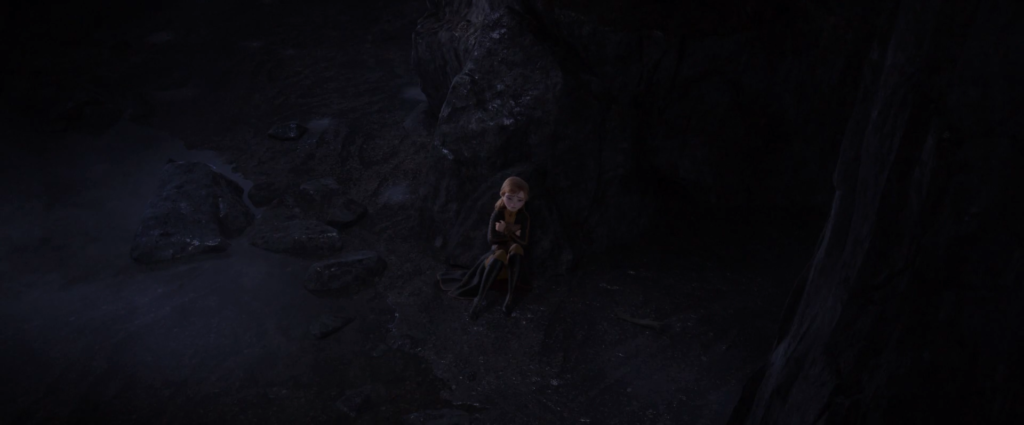
Contemplation and conversation
P.s. This experience of a lack of guidance or orientation is beautifully expressed in the song ‘The next right thing’ in the Disney-movie Frozen 2. Without spoiling for those who have not watched it yet, the simple point that is being expressed by Anna in the story is that she has lost her usual way to act in her life and needs to figure out what to do next. One way to understand the solution to this is to see how she finds a deep wish inside herself and re-focuses on the very next moment instead of the longer future. Listening to this song, watching this movie, is a wonderful way to contemplate for ourselves: what is our guidance in life, and what is the next right thing for us to do? I am curious to hear your experience about the song and insights about this question – feel free to start a conversation below or just share something. Especially because sharing our aspirations and intentions with others help to cultivate and strengthen them!
P.p.s. I wrote this article on a day in which I had set my intention to allow some space for writing. I ended up going on a little adventure on my bicycle during a very sunny day at first, but after reading in His Holiness the Karmapa his book I felt inspired to write this message of wonder. I have no doubt that my initial intention, though temporarily on hold, pushed me to actually writing this. Just like my deeper aspiration led me to the little adventure, since I noticed how it was important to take some time for myself outside and to both wander and wonder. Both are a clear sign for me how much power there can be to setting our aspirations and, subsequently, our intentions.

